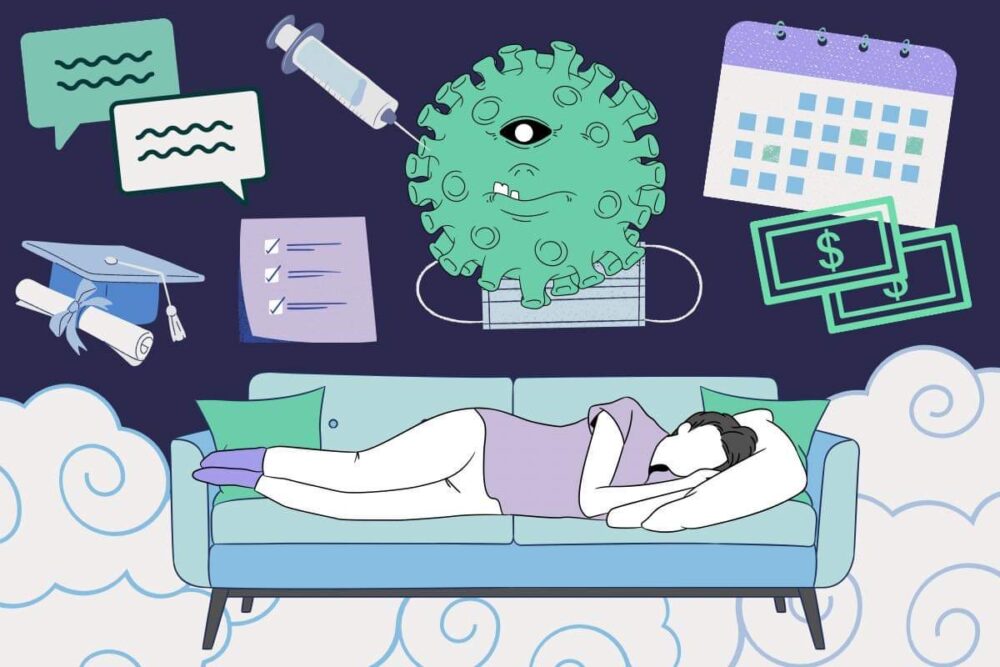
By Emily Doan
The COVID-19 pandemic has affected our lives in many ways, from the expansive loss of life to the inability to do once considered everyday activities to millions of students having to resort to virtual learning. As students are adapting to this new way of life, how are their sleeping habits being affected?
Students are displaying unprecedented levels of stress and uncertainty during these times. According to a poll by the American Psychological Association, “Gen Z teens ages 13-17 (81%) report they have experienced negative impacts of pandemic-related school closures, and half (51%) say the pandemic makes planning for the future feel impossible.”
Getting the eight to 10 hours of sleep recommended for 13- to 18-year-olds may seem unattainable, but the list of detriments from getting inadequate sleep is a seemingly endless one. From having a compromised cardiovascular system to an interrupted and imbalanced hormone production, healthy sleeping habits are of the utmost importance.
The question is how are students expected to balance their health with their education, especially now when education couldn’t be looking more different? Senior Grace Haroun believes that the setting of virtual learning has had a “toxic” effect on her productivity and sleeping habits.
“Last year, I had a more or less consistent schedule, but now that I’m home most of the day and school is online, I don’t have to physically be anywhere or turn something in,” Haroun said. “I have an illusion of more time, so I’ll spend more time on my phone or outside than I would last year, which results in me staying up later to complete homework.”
Many students this school year are experiencing similar hardships to Haroun. Seemingly limitless free time, anxiety about the pandemic, decreased amounts of structure and staring at a computer screen for hours on end are noted by students to have a negative impact on their sleeping habits and productivity.
“I feel very drained when trying to complete any school work. I zone out and get distracted often and don’t always have enough energy to complete it with effort,” junior Emma Chavez said. “I sit in front of a computer all day, whether I’m at home or in class, then I have homework after that.”
But while many students are struggling to adjust to virtual learning, others, such as senior Kate Lee, believe that online school has been overall beneficial, allowing students to get one to two more hours of sleep compared to prior years.
“I feel a lot less stress with this new online model and because of the block schedule, I don’t have assignments due every single day, so I’m able to more efficiently manage my time and go to bed earlier,” Lee said.
Despite these varying experiences, the reality is that this year has created endless obstacles for students to process and withstand. Online school is a new frontier no one expected to have to conquer and many are struggling.
As students continue to embark on this journey that is distance learning, the emphasis on healthy sleeping habits needs to be larger. Implementing techniques to overcome procrastination, becoming more conscious of one’s screen time and respecting the growing body’s need for sleep are all steps that students can start to take. Together, teachers and students also need to set realistic expectations for themselves and others in order to have a successful and healthy school year.





